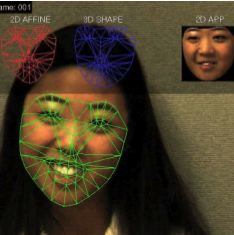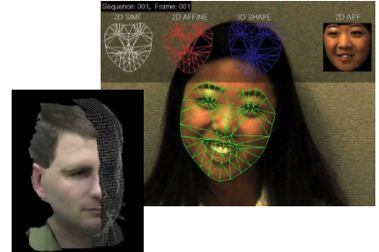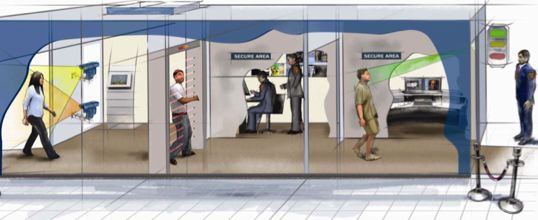Travel Tips
New FAST Airport Security Screening Technology: Innovative or Invasive?
 Eight years after 9/11, the government is still looking for high-tech ways to improve airport security, so it should come as no surprise that the Department of Homeland Security recently announced that it is experimenting with a “hostile intent” screening system.
Eight years after 9/11, the government is still looking for high-tech ways to improve airport security, so it should come as no surprise that the Department of Homeland Security recently announced that it is experimenting with a “hostile intent” screening system.
The prototype system, known as the Future Attribute Screening Technology (FAST) project, screens passengers based on natural behavioral signals like pulse rate, breathing patterns, momentary facial expressions, and fidgeting.
But is this new screening system an invasion of privacy akin to a malicious thought-detecting scheme, or is it worthwhile because it may make trips through airport security quicker and less awkward? And will it even work?
The FAST system uses a range of sensors, from simple cameras to a souped-up Nintendo Wii balance board, to collect data to help screeners determine whether or not a person displays any physical “red flags” that may indicate hostile intent.
The passenger stands on a “fidgeting monitor,” which is similar to the balance board used to play some Nintendo Wii fitness games, while a screener asks a series of questions. The system then graphs their responses.
 Thermal imaging devices measure facial temperature, eye-safe lasers track blinking and pupil dilation, and other machines measure heartbeats and respiratory rates.
Thermal imaging devices measure facial temperature, eye-safe lasers track blinking and pupil dilation, and other machines measure heartbeats and respiratory rates.
The system had a 78% success rate in tests where actors were instructed to consciously act suspiciously. And the Homeland Security research team that developed FAST notes that it will save people the trouble of having to take off their shoes and jackets at security checkpoints.
But critics of the technology say it is an invasion of privacy and fear that the data made available to the screeners could reveal an illness that you didn’t know about or didn’t want to disclose publicly. They also worry that the technology could turn screeners into “thought police” similar to Big Brother of science fiction novels or the “pre-crime” surveillance team of movies like Minority Report.
Regardless of whether or not FAST represents a step toward an Orwellian police state, proponents of civil liberties feel that the technology is only a small step away from questioning people based on ethnicity or other physical attributes.
Get the latest on security measures from the TSA & DHS with Additional TSA Security Measures: Progressive or Oppressive? Or learn more about the Airport Security of the Future.
But Homeland Security officials say the data is never linked to an identity and will only be used to help screeners decide if a suspicious person should be interviewed.
Others doubt the research that links behavioral signals like blood pressure, breathing, and skin temperature to intent. They also point out that the system faces many of the same problems as polygraph tests, which are inadmissible in most courtrooms due to doubts about their veracity.
Researchers insist that their data is backed by more than 40 years of research on the subject.
While the FAST system takes into account more body signals than polygraph tests do, project director Robert Burns says that screeners will also be instructed to look for people who are conspicuously missing these signals.
Aside from the privacy concerns and questions about its efficacy, at least one academic who has studied FAST feels that it is irresponsible for the government to spend so much money on such a system, when old-fashioned intelligence and detective work would be more cost-effective in terms of finding would-be terrorists.
Researchers hope that the technology will be ready to be tested in airports by 2011.
By Dan Bence for PeterGreenberg.com.
Related Links: CNN, Department of Homeland Security, Boston Globe
PeterGreenberg.com Links:
- Airport Security of the Future
- Terrorism & Travel Security
- TSA Boosts Screenings for Powders; Liquid Ban Lingers
- Additional TSA Security Measures: Progressive or Oppressive?
- Greenberg-Tested, TSA-Approved Toiletries
- Will “Improved” TSA Watch List Make Us Safer?
- Tip: New TSA Secure Flight Program
- Travel-Testing TSA-Friendly Laptop Computer Bags













